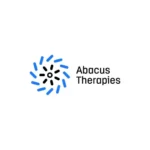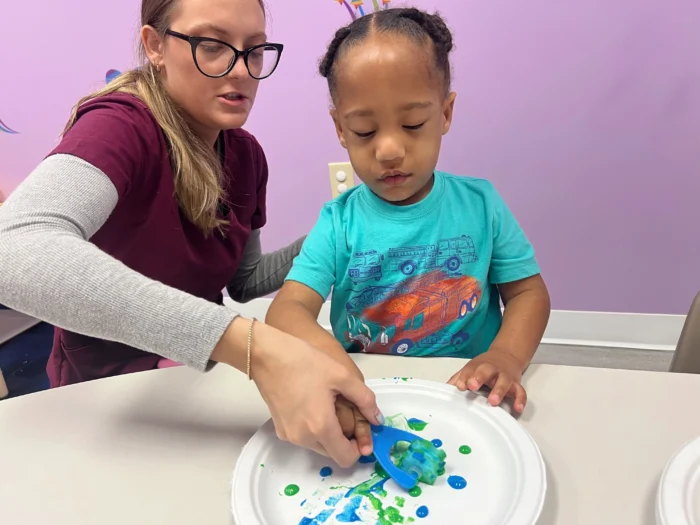
North Carolina is widely known for the array of services and treatment options it provides to kids with autism spectrum disorder (ASD). In fact, some of the most popular autism treatments have originated in the state. But how many children are affected by autism in the Tar Heel State?
In this article, we’ll look at the data on autism prevalence in North Carolina available as of 2024 and see how the ASD rates in the state have changed over the years. We’ll also examine the differences in prevalence based on gender and ethnicity. Finally, we’ll reveal when kids in North Carolina are typically diagnosed and how many of them experience intellectual difficulties.
Top 6 Autism Stats for North Carolina
- Autism affects 1 in 39 8-year-olds in central North Carolina.
- Since 2002, the share of kids with ASD in NC has nearly tripled.
- In North Carolina, the median age at diagnosis is 38 months.
- Boys in NC are 4.7 times more likely to be diagnosed with ASD than girls.
- Asian and Pacific Islander kids in NC are most likely to have ASD.
- 34.1% of autistic 8-year-olds in North Carolina have an intellectual disability.
Autism Rates in North Carolina: An In-Depth Look
1. Autism affects 1 in 39 8-year-olds in central North Carolina.
(CDC)
According to the CDC report published in 2020, the organization’s latest report to include North Carolina, 2.5% of 8-year-olds in the state’s central part were diagnosed with autism. Looking at the data from the same year, ASD rates in North Carolina were significantly higher than the national average of 1 in 54 8-year-olds — translating to roughly 1.85% of all children that age.
The CDC report mentioned above was based on the data collected across 11 states. The only state with a higher autism prevalence rate than North Carolina was New Jersey, where 1 in 32 8-year-olds (3.1%) had autism. ASD rates exceeding the national average were also recorded in Minnesota (1 in 44 8-year-olds; 2.3%), Maryland (1 in 52; 1.9%), and Georgia (1 in 53; 1.9%).
2. Since 2002, the share of kids with ASD in NC has nearly tripled.
(CDC)
In 2002, the CDC reported that 1 in 153 8-year-olds — or 0.65% of kids that age — in North Carolina were diagnosed with autism. The latest rate is 1 in 39 8-year-olds or 2.5% of children that age, marking a massive 284.6% increase in ASD prevalence in North Carolina since 2002.
While these numbers may suggest that we’re in the midst of an ASD epidemic, that’s just one of the many modern myths about autism. In reality, people are much more aware of autism and less likely to ignore its symptoms than they were two decades ago.
Clinicians are also more knowledgeable about the condition and equipped to reliably diagnose it even in kids as young as 18 months old. Finally, the diagnostic criteria have changed, bringing previously separate diagnoses (e.g., Asperger’s and Heller’s syndrome) together under a unifying ASD umbrella.
3. In North Carolina, the median age at diagnosis is 38 months.
(CDC)
Based on CDC’s data, kids in North Carolina receive their first ASD diagnosis much earlier than their peers in other US states. Specifically, the median age at the time of the first reliable ASD diagnosis in NC was 3 years and 2 months. Maryland ranked second (median age of 47.5 months), followed by Colorado (48.5 months) and Wisconsin (49 months).
On the opposite end of the spectrum, the highest median age at diagnosis was recorded in Arizona — 57 months.
Considering these results, it’s no surprise that the lowest median age at the time kids receive their first comprehensive evaluation — 29 months — was also recorded in North Carolina. As for other states, Wisconsin ranked second at 36 months, followed by Colorado at 37.5 months and Maryland at 38 months. The highest median age was recorded in Arkansas — 46 months.
4. Boys in NC are 4.7 times more likely to be diagnosed with ASD than girls.
(CDC, CDC)
The CDC’s autism statistics for North Carolina reveal that the ASD rate among 8-year-old boys is 4.1% (about 1 in 24). Meanwhile, it is close to 0.9% (1 in 111) for girls. A similar discrepancy has been recorded across the country, but it is more evident in North Carolina, where it is also significantly above the national average. For context, autism stats show that 8-year-old boys in the United States are 4.2 times more likely to be diagnosed with ASD than girls their age.
While there is no definite answer as to why this is the case, scientists have proposed several possible explanations. These include the fact that boys display motor skill issues at an earlier age and girls tend to mask their symptoms due to a combination of biological and social factors.
Additionally, a relatively recent theory suggests that girls are diagnosed less often than boys because the diagnostic criteria for autism were largely based on male behavior.
5. Asian and Pacific Islander kids in NC are most likely to have ASD.
(CDC)
A look at autism demographics in North Carolina reveals that 8-year-olds of Asian and Pacific Islander background had a diagnosis rate of 2.82% (about 1 in 35). This makes them more likely to be diagnosed with autism than their peers of other ethnicities. For comparison, the rate was 2.79% (1 in 36) for non-Hispanic Black kids and 2.33% (1 in 43) for non-Hispanic White kids.
The lowest prevalence was recorded among Hispanic children — 1.93% (1 in 52 8-year-olds).
6. 34.1% of autistic 8-year-olds in North Carolina have an intellectual disability.
(CDC, CDC)
Autism is a neurodevelopmental disorder, not an intellectual disability. However, because ASD affects children’s developing brains, intellectual disabilities are common among kids on the spectrum. In 2020, the CDC reported that approximately one-third of autistic 8-year-olds across the US had intellectual disability. Under the official guidelines in DSM-5, these children had IQ scores at or below 70 and displayed difficulties in adaptive functioning compared to their peers.
According to autism numbers from North Carolina, 34.1% of 8-year-olds had an IQ equal to or lower than 70, putting them in the intellectually disabled bracket. Meanwhile, 20.8% of the kids had scores in the 71–85 range, which is deemed a borderline range for intellectual functioning. The rest (44.9%) had IQ scores of 85 or above, meaning they were intellectually functional.
North Carolina Autism Facts: The Takeaway
Although North Carolina has higher ASD prevalence rates than most other states, it is a very autism-friendly place, providing numerous services and benefits for autistic children and their parents. It is also the state with the lowest median age at the time of diagnosis, allowing kids to start treatment earlier than their peers elsewhere in the US. This is important because research shows that early intervention in autistic kids usually leads to more positive treatment outcomes.
Applied behavioral analysis (ABA) therapy is scientifically proven as one of the most effective autism treatments for children. At Abacus Therapies, our team of highly qualified therapists with years of experience provides at-home and at-school ABA sessions in North Carolina. Starting this fall, we’ll also begin offering sessions at our new ABA therapy center in Charlotte, NC.
Start your ABA journey today by scheduling a free consultation via phone, email, or text. We will create a unique program based on your child’s individual needs and guide you through every step of the process.




